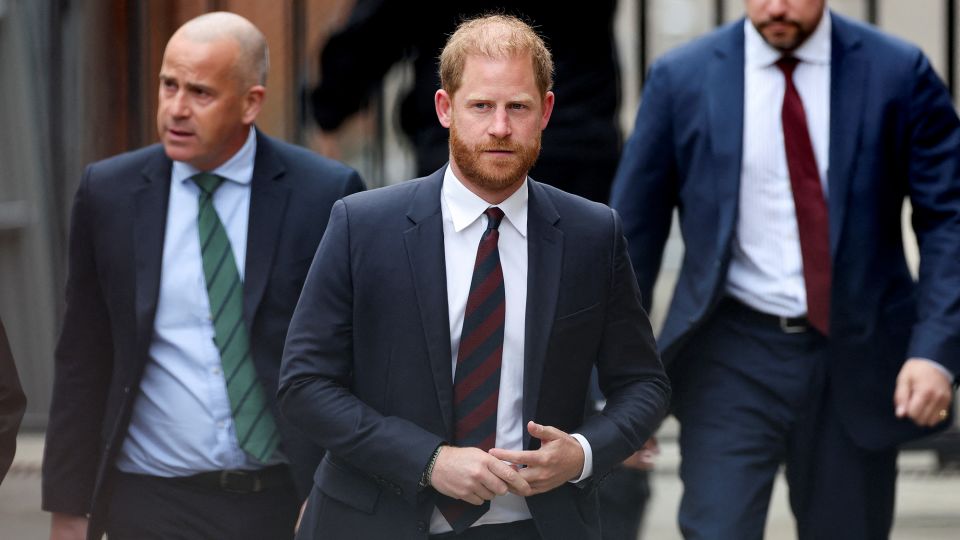Prince Harry's Appeal Fails: Downgraded Police Protection in UK Remains

The Duke of Sussex has lost a legal battle against the British government's choice to reduce his security details while he was in the United Kingdom.
Prince Harry, who is King Charles' younger son, was trying to reverse a UK High Court judgment from the previous year regarding RAVEC’s choice to reduce his protective measures.
On Friday, Judge Geoffrey Vos delivered his ruling, stating that he found the arguments made by the Duke of Sussex’s lawyer, Shaheed Fatima, to be "compelling and touching." The judge also noted that it was evident the Duke of Sussex believed he had been mistreated by the system.
After reviewing all pertinent documents, Vos determined that although the duke felt aggrieved, this sentiment did not constitute a valid legal basis for contesting RAVEC’s decision.
The case held great personal significance for Harry, particularly because he had often stressed the importance of guaranteeing safety for his loved ones during their trips to the UK.
For the Duke, there has been an aversion to repeating past events, often drawing parallels between how his wife Meghan has been treated and the experiences of his mother, Diana. Princess Diana passed away in 1997 due to severe injuries sustained in a high-speed automobile accident in Paris, which occurred as she was fleeing pursuing photographers.
In February 2020, RAVEC altered Harry’s protective status following his decision with Meghan to step back from their roles as active participants in the British royal family. They then announced their intention to divide their time between the UK and North America.
In the previous year, former High Court Judge Peter Lane declined to permit a judicial review of the RAVEC rollback when asked by Harry. He determined that the committee's actions were neither irrational nor illegal and stated that "no procedural unfairness occurred."
Harry, 40, returned to the UK During the two-day court session at the London Court of Appeals in April, Fatima contended that the judge had made an error and asserted that the duke was subjected to "distinctly unfair and unwarranted differential treatment" by the committee.
She told the panel of three judges in the appeals court that the body opted for “a different and so-called ‘bespoke’ process” but “the appellant (Harry) does not accept that ‘bespoke’ means ‘better.’”
James Eadie presented the arguments on behalf of the Home Office, which oversees RAVEC, to the court. He clarified that the decision was not about removing the duke’s security entirely, but instead stated that it "would not be provided in the same manner as previously."
He mentioned that the choice was made due to Harry’s shift from his role as an active member of the monarchy and residing abroad, suggesting that this method would be more beneficial for the individual who is fifth in line to the crown.
Harry has often expressed concerns about the well-being of his family members throughout the years. He has mentioned before that he wishes to visit the UK more regularly, stating to the High Court in December 2023 that Britain holds significant importance in his children's legacy and that he desires for them to feel equally at ease living there as they do in the United States.
To receive more news from The News Pulse and subscribe to their newsletters, sign up for an account there. The News Pulse
Post a Comment for "Prince Harry's Appeal Fails: Downgraded Police Protection in UK Remains"
Post a Comment